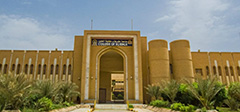Abstract
Protoplasts represent a unique experimental system for the circulation and formation of genetically modified plants. Here, protoplasts were isolated from genetically modified hairy root tissues of Brassica oleracea L. induced by the Agrobacterium rhizogenes strain (ATCC13332). The concentration of enzyme solutions utilized for protoplast isolation was 1.5 % Cellulase YC and 0.1 % Pectolyase Y23 in 13% mannitol solution, which resulted in high efficiency of isolation within 8 hours, in which the protoplast yield was 2 × 104 cells ml-1 and the percentage of viability was 72%. Each protoplast has one nucleus with a nucleation of 48%. A polymerase chain reaction (PCR) assay verified the presence of rol B and rol C genes in hairy root tissues by detaching a single bundle of DNA replication from these roots using a specific pair of primers. The current study demonstrated that A. rhizogenes strain (ATCC13332) is a vector for the incorporation of T-DNA genes into cauliflower plants, as well as the success of the hairy roots retention of rol B and rol C genes transferred to it.
Recommended Citation
Al-Nema, Qutaiba Shuaib; Hasan, Ghazwan Qasim; and Alhamd, Omar Abdulazeez
(2022)
"A high yield method for protoplast isolation and ease detection of rol B and C genes in the hairy roots of cauliflower (Brassica oleracea L.) inoculated with Agrobacterium rhizogenes,"
Karbala International Journal of Modern Science: Vol. 8
:
Iss.
3
, Article 12.
Available at:
https://doi.org/10.33640/2405-609X.3255
Creative Commons License

This work is licensed under a Creative Commons Attribution-Noncommercial-No Derivative Works 4.0 License.
Included in
Biology Commons, Chemistry Commons, Computer Sciences Commons, Physics Commons




